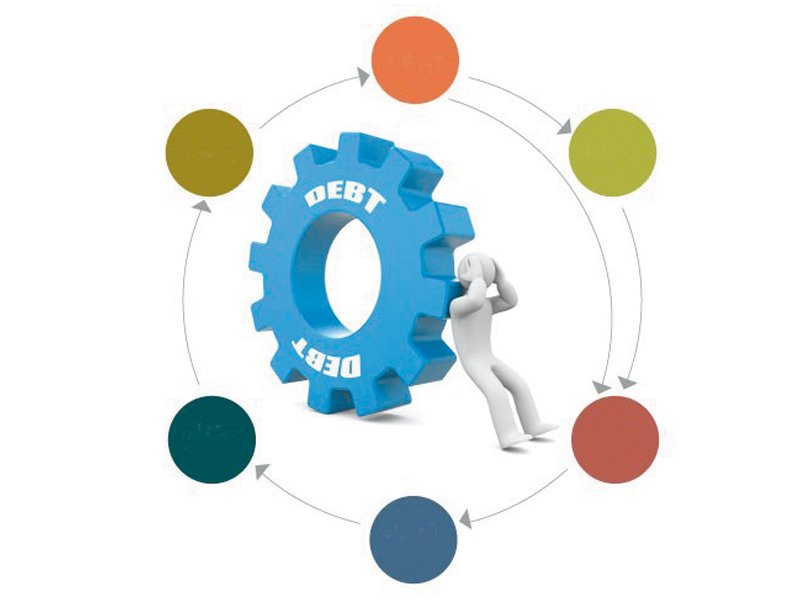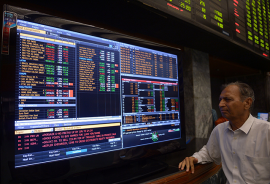
After the auditors pointed out massive irregularities in the payment of circular debt amounting to Rs480 billion, the State Bank of Pakistan (SBP) on Thursday confirmed that it cleared Rs342 billion worth of debt “as a special case on advice of the Ministry of Finance”.
The statement by a central bank official in a meeting of the Senate Standing Committee on Finance has further deepened apprehensions about authenticity of the bills, as the Auditor General of Pakistan (AGP) has already pointed out that of the total of Rs480 billion, payment of Rs165 billion was “avoidable”.
Circular debt payments
“On June 28, 2013, we got advice from the Ministry of Finance to credit Rs341.958 billion to Pakistan Electric Power Company’s (Pepco) bank account in National Bank of Pakistan, Lahore branch, as a special case,” said SBP Director Saleemullah in a testimony to the committee. The payment was made on the same day, he said.
He, however, pointed out that in normal cases, the Accountant General of Pakistan Revenue (AGPR) would release the advice for making payments.
The chief finance officer of Pepco also acknowledged before the committee that his department made the payment to independent power producers (IPPs) on the same day.
“It’s a unique case in the history of Pakistan where the payment of Rs342 billion is ordered and cleared within a day and it is now imperative to further investigate the case,” said Senator Saleem Mandviwalla, Chairman of the standing committee.
After taking over the government in June 2013, the PML-N government cleared the Rs480-billion circular debt within days.
“I met Ministry of Water and Power Secretary Younus Dagha who told me that the Ministry of Finance did not take his ministry into confidence,” said Mandviwalla.
Additional Auditor General of Pakistan Javaid Jehangir told the committee that the finance ministry bypassed the AGPR office and the department concerned while ordering the central bank to clear the circular debt. He called the bypassing of the AGPR and the relevant department “a serious lapse”.
Circular debt: Recover excess sums paid to IPPs, says PAC
Ministry of Finance Joint Secretary Tasadak Hussain told the Senate panel that the Economic Coordination Committee (ECC) had given approval for clearing the circular debt on June 27, 2013. The Ministry of Water and Power had sent the summary in this regard, he said.
However, committee members questioned the authority of the ECC, saying the payment of electricity dues was a normal business that did not require the ECC’s approval.
Hussain said after the ECC’s go-ahead on June 27, the next day the finance ministry asked the central bank to clear the outstanding power bills, which it did.
“It was unprecedented that a government paid Rs341 billion in a day, it doesn’t even happen in cases where recipients pay 25% of the amount in commission,” remarked Senator Kamil Ali Agha. It appeared that the IPPs had paid huge kickbacks, he alleged.
According to the audit report, the finance ministry disregarded the pre-agreed mechanism for the release of money.
Last month, Auditor General of Pakistan Rana Assad Amin had shared findings of the special audit into the Rs480-billion payment, raising 15 objections. The report described the release of Rs342 billion to Pepco as irregular.
Furthermore, it said the government paid Rs31.7 billion in late payment charges, which were avoidable. The auditors also objected to the Rs25.1-billion non-cash adjustment, terming it “unjustifiable”.
The issue of circular debt
The IPPs were favoured when the government made another “unjustified payment” amounting to Rs18.5 billion on account of general sales tax.
Apart from these, an unjustified payment of Rs32.5 billion was made on account of idle capacity. The government paid Rs28.4 billion despite the non-existence and non-renewal of gas supply agreements with the public utilities.
Published in The Express Tribune, February 26th, 2016.
Like Business on Facebook, follow @TribuneBiz on Twitter to stay informed and join in the conversation.


1725030039-0/Untitled-design-(2)1725030039-0-165x106.webp)
1725366721-0/kyle-(1)1725366721-0-165x106.webp)
1731410017-0/BeFunky-collage-(45)1731410017-0-165x106.webp)



1732084432-0/Untitled-design-(63)1732084432-0-270x192.webp)








COMMENTS (2)
Comments are moderated and generally will be posted if they are on-topic and not abusive.
For more information, please see our Comments FAQ